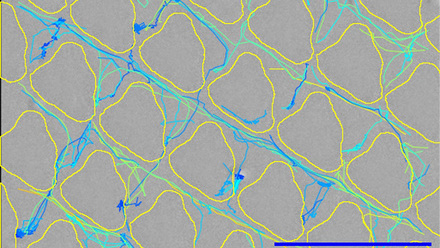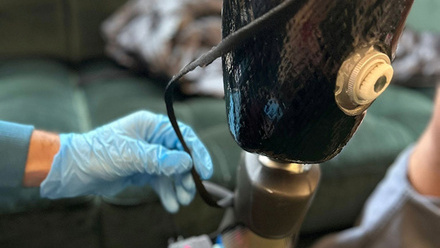Consider being an Ally
Martin Griffin talks about meaningful allyship and moving away from being a bystander in his latest blog for IOM3.
Some days, I admit I am tired of advocating about Equity Diversity and Inclusion (EDI) in the workplace and society. I am impatient about the pace of change, especially in areas such as culture and behaviours. I don't always want to be seen as the grumpy dad and an angry disabled geological engineer. Progress is slow, no day is the same filled with a variety of challenges, but good friends inform me progress is being made even when I don't see it. As a new friend said recently 'when it rains, look for rainbows; when it's dark look for stars'. Or regularly meeting up and spending quality time with an old infant school friend whom I have thankfully known for 43 years. Both actions reminded me of the importance of friendship and being an ally.
Yes, I have dark times and shadows of doubt, saying to myself good am doing or what benefit is to me. The complexity and massive task can overwhelm me, despite hearing so many words of intent, seeing highly commendable actions elsewhere but it starts at an individual level and what each one of us can do to make a positive difference to others around us. I have to go on reminding myself, promoting diversity is vital, as it represents a beautiful cross-section of society where everyone can bring their unique talents and experiences for one and all can benefit from.
I have been involved in EDI activities since 2013 in a lay capacity; I do not call it an agenda. Personally, I don't like using the phrase 'EDI agenda'; put simply to me this speaks of a tidy plan of proposed activities to be undertaken, an appointment that can be conveniently fitted into life's myriad of busy business. During the last eight-plus years, I have experienced many ups and downs concerning my family, my working days and my professional life. My time being a juggler is real, messy, complex, living 24/7 with the intersectionality of various conditions.
Myself being neurodivergent; I am a mixture of conditions: autism, dyslexia, dyspraxia, and also visually impaired. All of which have their own unique and overlapping strengths and challenges at work and in society. One of the biggest challenges in undertaking EDI activity is being effective without being seen as a trouble-maker or a token. I have also seen many including myself advocating change and undertaking EDI activity without being recognised and remunerated for their efforts. I would ask why does EDI work falls to those who are marginalised or underrepresented, adding additional pressure to their working lives. We are individuals who are passionate, creative, innovative and intrinsically driven, and add great value to the culture of our organisations and to society at large.
However, undertaking EDI activities such as writing blogs, promoting awareness, delivering presentations, training sessions, advising others, setting up support groups, devising action plans, etc, often comes at a personal cost to those directly involved. For some it’s being vulnerable, exposed, emotional when sharing their life experiences, for others it costs them a promotion because their EDI work is not part of their objectives and not valued as much as, say, research or being on a highly successful project with a winning team.
So wherever we are with EDI, if something we cannot avoid it. Each one of us has a vital part to play, we are all cogs in the wheel turning for change. In the simplistic sense, I think of the paraoplyimicians being interviewed after competing in their events. A repeated narrative involved thanking and acknowledging loved ones who gave support, encouragement, time to help these sportspeople fulfill their dreams in competing at the highest level for their country. This is not necessarily financial but usually, it was seen as emotional support and practical ways of demonstrating the intrinsic value of one and all. These supporters were being true allies of an underrepresented group. They are are allies because their words and action are in sync. Their words were with actions and are not detrimental and involved work changing the culture. Thus, I would love to give a big thank you to all my allies, you know who you are.
To be an ally is any person that actively promotes and aspires to advance the culture of inclusion through intentional, positive and conscious efforts that benefit people as a whole. Everyone has the ability to be an ally as privilege is intersectional - white women can be actionable allies to people of colour, men can be allies to women, cis people can be allies to members of the LGBTQI+ community, able-bodied people can be allies to those with different abilities, economically privileged people can be allies to those who are not and so on. Therefore, to be a better ally, some things we can all consider:
- Confront your own unconscious bias, privilege, and be open to being corrected
- Lift others up by advocating for inclusion in your daily life
- Share growth and fruitful opportunities with others to participate in,
- Not view venting as a personal attack, but to promote opportunities for lasting change,
- Recognise systematic inequalities and the impact of micro-aggressions,
- Believe underrepresented people’s lived experiences,
- Listen, proactive support, self-reflect and change what you can,
- Encourage open conversations about equality and justice,
- Learn more about the history of the struggles that you are supporting,
- Figure out how you can best change systems in society that are oppressive,
- Share the voices of the people you are supporting - both online and in-person,
- Learn how to actively listen and accept criticism even if its uncomfortable







